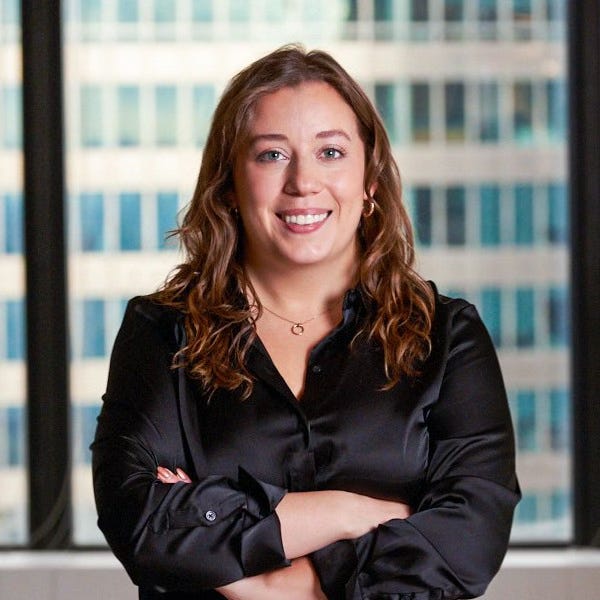From generalist to specialist and back again: Navigating the communications career paradox
Tips on embracing the career paradox to choose the right career path for you
If you're early in your communications career, you've likely wrestled with two seemingly opposing mindsets: "Should I find my specialty now?" versus "Is it better to stay well-rounded?"
Seeking your next role or project can be daunting. You may ask yourself questions like, “When is it too early to specialize?” or “When is it too late?” As someone who's spent over eight years zigzagging through various communications roles, I'm here to tell you that this isn't an either/or decision—both paths are valuable, just at different times in your journey.
Finding my niche
My career began with a classic recent-grad move—taking the first offer that came along because I felt the pressure of watching friends land jobs while I was still searching. That first role as an editor for an advertising agency taught me an important lesson quickly: I hated being siloed. I was working on just one small piece of the project lifecycle, without involvement in ideation or seeing it through to completion. Within three months, I knew this laser-focused level of specialization wasn't for me.
Craving more variety, I pivoted to an internship at a small PR agency. Suddenly, I was managing events and speaker prep, drafting press releases, and brainstorming campaigns from the beginning. My time there gave me clarity about what energized me: being involved in the full communications lifecycle.
This led me to a role as a team of one handling brand design, employee messaging, and business development. As my experience broadened, I began to take note of which aspects of communications truly lit me up, and anything related to internal communications consistently stood out.
The specialist phase
Following this realization, I deliberately sought specialization. I joined a large agency to help build their internal communications practice. For almost two years, I immersed myself in employee engagement strategies, change management frameworks, and internal campaign metrics.
I developed an expertise in connecting leadership with teams and building organizational culture. Then, I took a leap in-house. I believed this would deepen my specialization even further—after all, I'd be focusing on internal comms for just one company.
The surprising return to breadth
What happened there surprised me. Rather than becoming more specialized, my in-house role expanded dramatically. I was handling not just employee communications but social media strategy and content creation, leadership communications, and DEI initiatives. What I thought would be a deeper dive into my specialty was an unexpected return to being a generalist—but with a different perspective and purpose.
Now, several years later, I have returned to the agency life, this time at a boutique firm specializing in internal comms strategy. The beauty of this current position is that it synthesizes everything that came before. My understanding of company siloes helps me break them down for clients. My experience in different industries informs my ability to craft audience-tailored, purpose-driven messaging. My specialist phase gave me a deep understanding of internal comms, and my in-house experience empowered me to integrate that with broader business strategy.
The cyclical nature of communications careers
This pattern isn't unique to me. Many successful communications professionals follow a similar cyclical journey:
Early career experimentation: Discovering what energizes you (and what doesn't)
Mid-career specialization: Developing expertise in your chosen area
Senior-level integration: Bringing specialized knowledge together with broader business understanding
So, what does this mean for you, if you’re in the early years of your communications journey?
Listen to your energy, not just advice.
Pay attention to what tasks leave you feeling fulfilled versus drained. My first post-grad experience wasn't wasted—it taught me what I didn't want. These realizations are invaluable signposts, and as you recognize which projects excite you and which ones deplete you, patterns will emerge to guide your next steps.
Don't be afraid to experiment in different areas of communications.
Each experience builds skills and perspective that will make you more valuable when you do specialize. As you move between roles, approach each new position with questions you're trying to answer. Is it the industry that matters to you or the job function? Do you prefer creative development or strategic planning? With each role, narrow your focus on what aspects truly resonate.
When you find something that consistently engages you, lean into it.
Developing expertise in one area will differentiate you from peers and accelerate your growth. And remember, specialization isn’t an endpoint, but a phase. Many communicators fear specializing will limit them, but the most adaptable careers involve cycles of focusing and expanding—developing deep expertise while being able to connect it to a bigger picture.
In today's rapidly evolving landscape, the ability to both dive deep and zoom out isn't just helpful—it's essential. So, embrace the paradox, and trust that your winding path is creating exactly the perspective that will make you invaluable.
I’d love to hear from you! Share your thoughts, ideas, or questions in the comments below and join the conversation.
Follow the Emerging Leader on Instagram @theemergingleader_ to stay in the loop!
Meet Morgan
Morgan Lovay is a Senior Account Manager at The Grossman Group, bringing nearly a decade of communications experience to support clients by creating strategies that strengthen culture, driving engagement, and communicating with clarity during times of change. She believes in the power of transparent, authentic communication to ensure employees feel valued, informed, and engaged.










